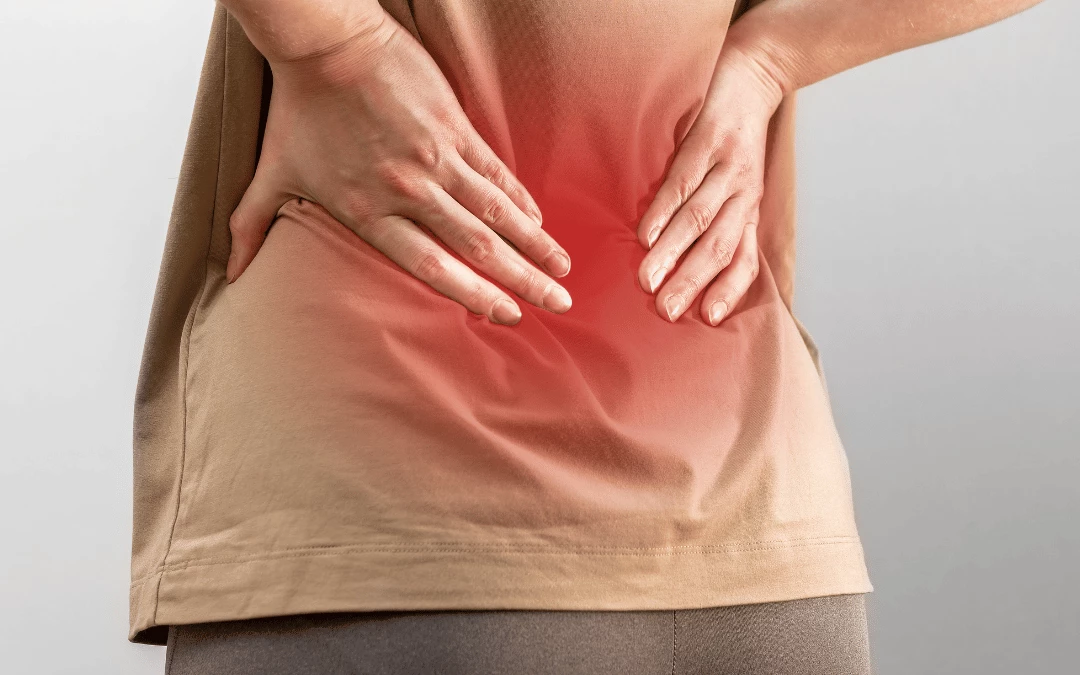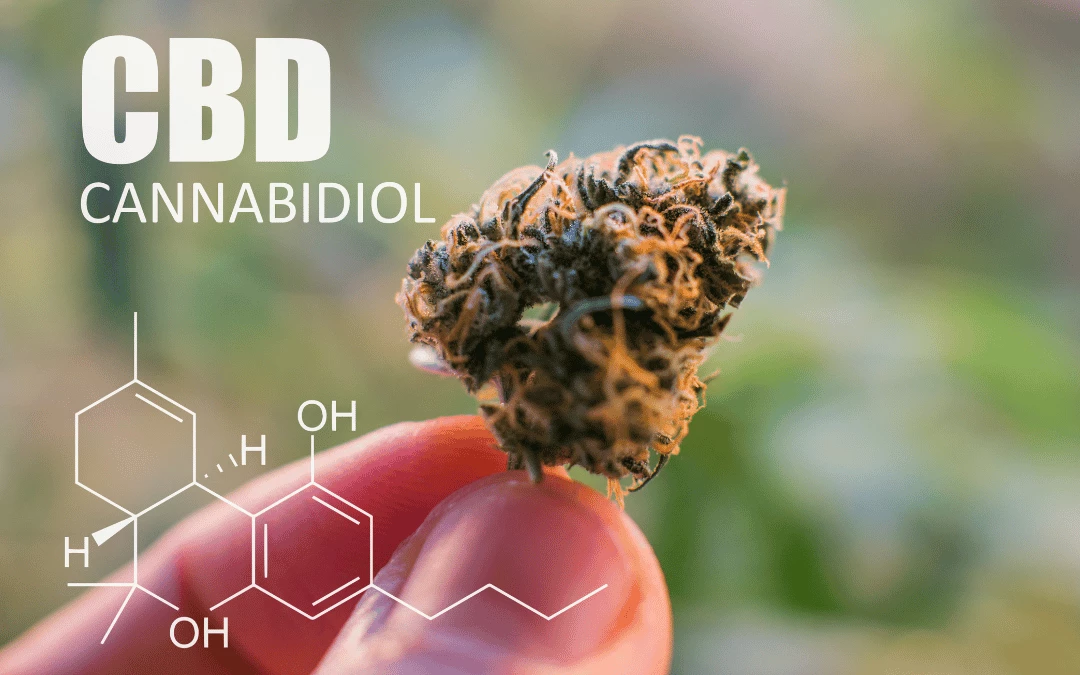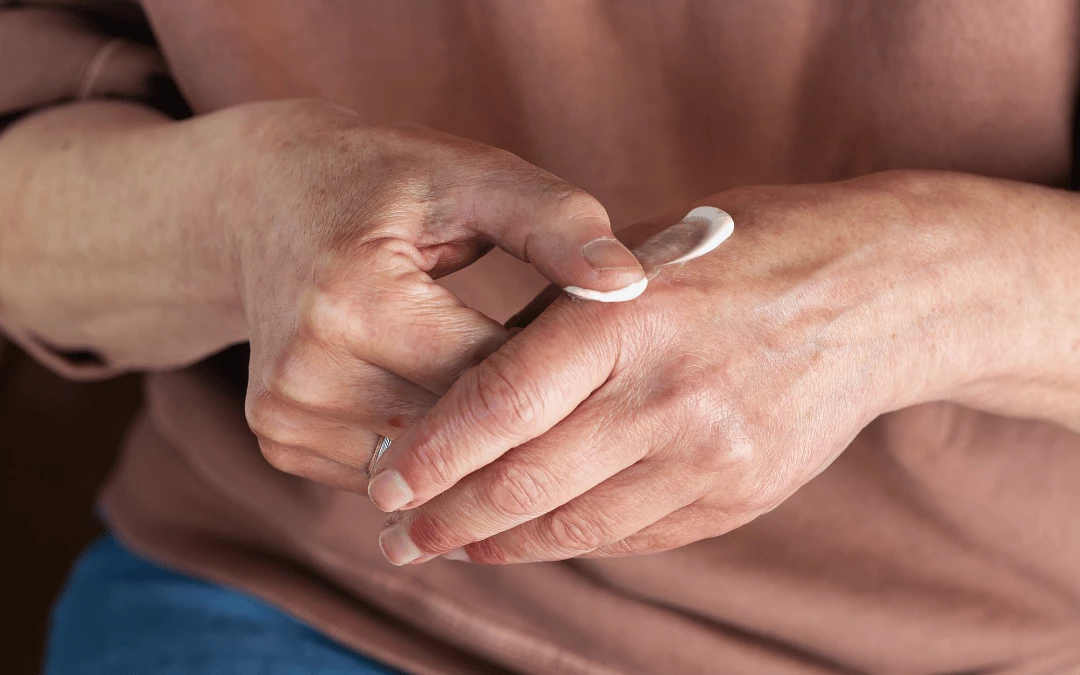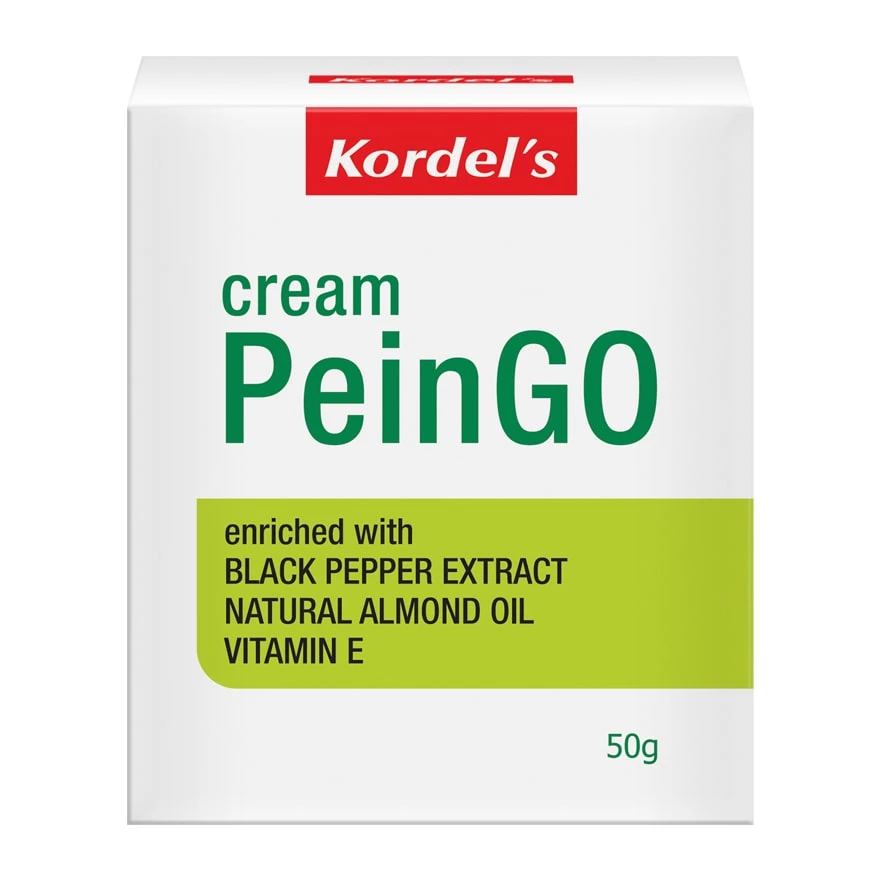Blog
Say Goodbye to Agony: Kordel's PeinGo, The Best Pain Relief Cream for Muscle & Joint Pain That’s Taking the Market by Storm!

In the midst of our busy daily lives, it is not uncommon to experience body pain that affects various parts of our body. This pain can arise from a number of sources, such as sore muscles from exercising or ongoing joint pain caused by everyday activities.
When the pain becomes a recurring issue and you’re tired of relying on oral medications, it may be worthwhile to consider using topical pain relief creams. These creams can serve as excellent alternatives for addressing joint pain, muscle pain, and other discomforts.
If you are in search of the most effective pain relief cream for your needs, look no further than Kordel's PeinGO. This excellent product not only provides immediate relief but also offers long-lasting results!
Kordel’s PeinGo: The Ultimate Pain Relief Solution
Introducing Kordel’s PeinGo cream—your best solution for fast and long-lasting pain relief. The cream is packed with a patented black pepper extract and PhytoCann BP® from Sulawesi Island. This unique blend of phyto-cannabinoids and terpenes has shown remarkable efficacy in quickly and effectively alleviating pain. PhytoCann BP® contains a high standardization of phyto-cannabinoid, caryophyllene (at least 33%), and entourage terpenes (at least 7.5%).
Beta-caryophyllene, found in plants like black pepper, cloves, and cannabis, actively engages with the Endocannabinoid System (ECS) in the body by binding to CB2 receptors.1 These receptors are predominantly found in immune cells and peripheral tissues, and they play a key role in reducing inflammation and pain perception without causing dependence.2
Additionally, the entourage terpenes, including active ingredients like pinene, humulene, limonene, and sabinene, work together to maximize pain relief and minimize inflammation.
The combined action of cannabinoids (CBD) and terpenes produces a more robust effect than individual compounds alone. For instance, the powerful combination of terpenes like humulene + caryophyllene exhibits notable anti-inflammatory properties, making it suitable for addressing conditions such as arthritis, bursitis, and fibromyalgia.
With its powerful blend of phyto-cannabinoids and terpenes, PhytoCann BP® in Kordel’s PeinGo cream proves to be more than just a formula – it's a potent solution for effective pain relief.
Kordel’s PeinGo is specially formulated for individuals looking for pain relief. This cream offers excellent effectiveness with a simple massage application targeting various types of pain including:
- Joint pain
- Muscle pain
- Knee pain
- Back pain
- Neck and shoulder pain
- Headaches
- Migraines
- Stomach pain

The Endocannabinoid System and Cannabinoid Receptors
The ECS is a cell-signalling system that regulates physiological processes in the body, consisting of endocannabinoids, receptors, and enzymes. It has two main receptor types: CB1 and CB2.
- CB1 receptors are located in the central nervous system and can produce psychoactive effects, influencing mood, memory, appetite, and pain perception.
- CB2 receptors are predominantly found in peripheral tissues, particularly in immune cells. Activation of CB2 receptors does not typically cause psychoactive effects, but it has anti-inflammatory effects.
- CB2 receptors are not highly concentrated in the central nervous system, which explains why they do not produce a "high" sensation.
Beta-Caryophyllene in Pain Management
Black pepper (Piper nigrum) contains a compound called beta-carophyllene (BCP), which has anti-inflammatory effects. BCP is classified as a dietary cannabinoid that selectively binds to CB2 receptors in the ECS. The activation of CB2 receptors is associated with anti-inflammatory and immunomodulatory effects.
On the other hand, cannabis contains various cannabinoids, with tetrahydrocannabinol (THC) being the primary psychoactive compound that activates CB1 receptors, leading to a sensation of being "high."
In short, unlike cannabis, which is rich in THC, BCP from black pepper interacts only with CB2 receptors and has shown potential anti-inflammatory effects without causing a "high" sensation.
How do Cannabinoids (CBD) Effectively Relieve Pain?
In a 2016 study, CBD demonstrated remarkable efficacy in alleviating arthritis symptoms in rats. Over four consecutive days, the application of CBD gel led to a noteworthy reduction in inflammation, joint swelling, and overall pain in the rats’ affected joints. Notably, this positive outcome was achieved without any observable side effects.5
Another study in 20176 examined 984 chronic pain patients dealing with various types of pain, such as nerve pain, back pain, arthritis, headaches, stomach pain, and post-surgical pain. The purpose of the study was to assess the effectiveness of CBD in relieving chronic pain. The results were noteworthy, with about two-thirds of the patients experiencing pain relief from CBD. Additionally, better sleep emerged as the second most frequently reported benefit in the study.
Based on these studies, researchers have concluded that CBD is effective in managing overall pain and does not cause negative side effects. This makes CBD a promising and safe solution for pain relief.

How to use Kordel’s PeinGo Cream?
To use Kordel’s PeinGo cream, simply apply a small amount to the affected area and gently massage it in. For optimal results, use the cream twice a day or as recommended by your healthcare provider.
It is important to avoid contact with the eyes, mouth, or nose; if cream accidentally comes into contact with these areas, rinse them off with water. It should not be applied to open wounds or broken skin.
This pain relief cream is made with a black pepper extract base and is enriched with natural almond oil, combined with vitamin E. Not only does it provide relief from discomfort and pain, but it also nourishes and moisturises the skin. The delightful scent of natural almond oil, combined with menthol, creates a pleasant cooling effect that helps to relax the body. This cream is fast-absorbing and leaves no sticky residue.
Conclusion
In the realm of modern medicine, the integration of CBD has significantly evolved in therapeutic pain management. Previously, cannabis was believed to have no medical value. However, ongoing research specifically on CBD has proven the belief wrong, reshaping our understanding of its potential benefits in alleviating various medical conditions, all without side effects or habit-forming risks.
With a scientifically backed understanding of CBD, Kordel’s PeinGo cream which uses BCP, a plant CBD, easily stands out as the best topical pain relief cream, serving as a cornerstone in effective pain management.
These creams offer zero risk of addiction, affordability, and convenient packaging, providing a potent solution that seamlessly fits into your lifestyle, delivering reliable relief on the go.
Whether you need to soothe sore muscles or alleviate joint pain, say goodbye to pain today with Kordel’s PeinGo!
References
- Kuwahata, H., Katsuyama, S., Komatsu, T., Nakamura, H., Corasaniti, M. T., Bagetta, G., … Takahama, K. (2012). Local Peripheral Effects of β-Caryophyllene through CB2 Receptors in Neuropathic Pain in Mice. Retrieved from https://www.scirp.org/journal/paperinformation?paperid=23613
- Bains S, Mukhdomi T. Medicinal Cannabis for Treatment of Chronic Pain. [Updated 2022 Dec 12]. In: StatPearls [Internet]. Treasure Island (FL): StatPearls Publishing; 2023 Jan-. Available from: https://www.ncbi.nlm.nih.gov/books/NBK574562/
- Brand, E. J., & Zhao, Z. (2017). Cannabis in Chinese Medicine: Are Some Traditional Indications Referenced in Ancient Literature Related to Cannabinoids? Frontiers in Pharmacology, 8. https://doi.org/10.3389/fphar.2017.00108
- Bhattacharyya, S., Morrison, P. D., Fusar-Poli, P., Martin-Santos, R., Borgwardt, S., Winton-Brown, T., Nosarti, C., Seal, M., Allen, P., Mehta, M. A., Stone, J. M., Tunstall, N., Giampietro, V., Kapur, S., Murray, R. M., Zuardi, A. W., Crippa, J. A., Atakan, Z., & McGuire, P. K. (2010). Opposite Effects of Δ-9-Tetrahydrocannabinol and Cannabidiol on Human Brain Function and Psychopathology. Neuropsychopharmacology, 35(3), 764-774. https://doi.org/10.1038/npp.2009.184
- Hammell, D. C., Zhang, L. P., Ma, F., Abshire, S. M., McIlwrath, S. L., Stinchcomb, A. L., & Westlund, K. N. (2016). Transdermal cannabidiol reduces inflammation and pain-related behaviours in a rat model of arthritis. European Journal of Pain (London, England), 20(6), 936. https://doi.org/10.1002/ejp.818
- Piper, B. J., Beals, M. L., Abess, A. T., Nichols, S. D., Martin, M., Cobb, C. M., & DeKeuster, R. M. (2017). Chronic Pain Patients’ Perspectives of Medical Cannabis. Pain, 158(7), 1373. https://doi.org/10.1097/j.pain.0000000000000899


Blog Comments